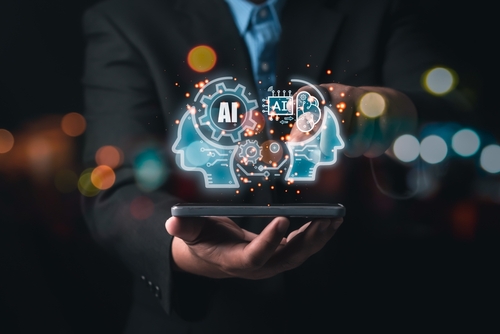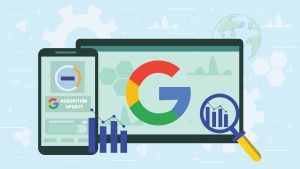The Truth About AI Content and Its Impact on SEO
Artificial Intelligence (AI) is reshaping the world of digital marketing, especially when it comes to content creation. Tools like ChatGPT, Jasper, and Copy.ai allow businesses to churn out content faster than ever. But there’s a big question: Is AI-generated content helping your SEO strategy, or could it be harming it?
The digital marketing team at Now Media Group explores both sides of the debate and explains how you can use AI to your advantage without jeopardizing your SEO efforts. Call (858) 333-8950 to learn more about our digital marketing services.
What is AI-Powered Content Creation?
Simply put, AI-powered content creation involves using advanced algorithms and natural language processing (NLP) to generate written content. This could range from blog posts to product descriptions to social media captions. Tools like Jasper and Copy.ai are designed to help businesses create content quickly by automating much of the writing process.
The appeal is obvious: these tools save time, reduce costs, and allow businesses to scale their content production. But while AI can generate text that reads well and incorporates specific keywords, there are deeper implications for SEO that many people might not consider.
How AI Content Creation Helps SEO
Efficiency in Content Production
AI-generated content allows businesses to produce more content in less time. Whether you need a hundred product descriptions or several blog posts, AI tools can handle it in a fraction of the time it would take a human writer. This is especially helpful for large e-commerce websites or media companies that need a constant flow of fresh content to stay competitive.
For example, imagine a clothing retailer with thousands of stocking-keeping units (SKUs). AI tools can quickly generate unique descriptions for each item, saving countless hours of manual labor. This consistent content creation can keep your website updated, which is a positive signal to search engines like Google.
Cost-Effectiveness
Hiring a team of human writers can be expensive, particularly for small businesses. AI tools offer a cost-effective alternative, enabling businesses with tight budgets to generate content without sacrificing volume. While quality might still require some human oversight, the initial drafts can be done by AI.
Keyword Optimization
Many AI content tools allow users to input target keywords, ensuring that the content aligns with SEO strategies. This means that businesses can continue to focus on ranking for relevant terms without spending hours manually inserting keywords into their content. Some tools, like Jasper, even offer keyword analysis features that allow you to optimize your content as you create it.
Content Variety
AI can help businesses diversify their content. Whether it’s a blog post, an email, or a social media caption, AI can generate different forms of content quickly, helping brands maintain a consistent presence across multiple platforms. This holistic approach to content creation strengthens the overall digital marketing strategy by improving brand visibility and driving traffic from various sources.
The Risks and Drawbacks of AI for SEO
While AI-powered content creation offers many benefits, it’s not without risks. In fact, relying too heavily on AI can potentially harm your SEO efforts.
Google’s Stance on AI-Generated Content
Google has made it clear that low-quality, AI-generated content could be penalized, especially if it’s not adding real value. In its August 2024 core update, Google’s algorithm placed even greater emphasis on rewarding content that offers original, human-driven insights. The fear is that AI-generated content, while functional, lacks the depth and creativity that Google values.
Lack of Originality and Depth
One of the major downsides of AI content is its inability to offer nuanced, insightful perspectives. AI tends to recycle information from existing sources without adding anything new. This lack of originality could result in thin content, which not only provides a poor user experience but also hurts your chances of ranking well in search results.
For example, a blog post written by AI might hit all the right keywords but fail to provide the deep expertise and unique viewpoint that search engines and users are looking for. Over time, this could hurt your SEO performance as your content becomes less competitive.
Risk of Over-Optimization
AI is excellent at optimizing for keywords, but it can sometimes take this to an extreme. Over-optimization can lead to unnatural language that feels forced, making the content less engaging for readers. This could result in higher bounce rates, which is a negative signal for SEO.
Content Duplication
Another concern is that multiple businesses using the same AI tools might end up with very similar content. While not technically identical, these near-duplicates could trigger issues with Google’s duplicate content filters, harming rankings across the board.
Google’s Push for Human-Centric Content
Google has been increasingly focused on content that reflects Experience, Expertise, Authoritativeness, and Trustworthiness (E-E-A-T). While efficient, AI-generated content struggles to meet these standards. Google’s recent updates suggest that it’s moving toward favoring content that demonstrates real-world experience and expert knowledge, which AI simply can’t replicate.
Google’s “Information Gain” SEO metric, which was introduced in 2024, rewards content that offers new insights and perspectives. AI-generated content, which tends to aggregate existing information, is less likely to satisfy this requirement. In other words, if you’re relying solely on AI to create content, your website could miss out on the ranking boosts that come from offering fresh, insightful material.
Best Practices for Blending AI with Human Content Creation
While AI tools can be incredibly useful, they shouldn’t replace human writers altogether. The best approach is to use AI to supplement your content creation process rather than rely on it entirely.
- Use AI for First Drafts: AI tools can generate rough drafts or outlines, which human writers can then refine and enrich. This way, you still get the speed and efficiency benefits but also maintain the originality and depth that Google values.
- Prioritize Quality Over Quantity: Instead of focusing on churning out large volumes of AI-generated content, businesses should prioritize fewer, higher-quality pieces. Quality content that provides real value to users will always rank better than poorly written, keyword-stuffed articles.
- Leverage AI for Research: AI can be a fantastic tool for brainstorming and content research. Use it to generate topic ideas, analyze trends, and gather data, but let your human writers shape the final narrative.
- Regularly Audit AI Content: Even if you use AI for content generation, it’s essential to audit the content regularly. Check for originality, coherence, and SEO alignment to ensure that the content continues to meet your quality standards.
When to Use AI and When to Rely on Human Writers
AI can be a game-changer in certain situations, but it’s not a one-size-fits-all solution. Use AI for tasks like product descriptions, meta descriptions, and social media posts, where creativity and originality may be less critical.
For long-form content, thought leadership, and case studies, human writers are still essential to producing high-quality, engaging material.
Don’t Let AI Hurt Your Rankings—Get the Right Strategy
Want to leverage the power of AI without compromising your SEO? It’s all about balance. Use AI to speed up production, but don’t forget that Google favors high-quality, human-driven content. Let us help you develop a strategy that maximizes the strengths of both AI and human creativity. Contact us at (858) 333-8950 to schedule a consultation and start improving your content—and your rankings!



